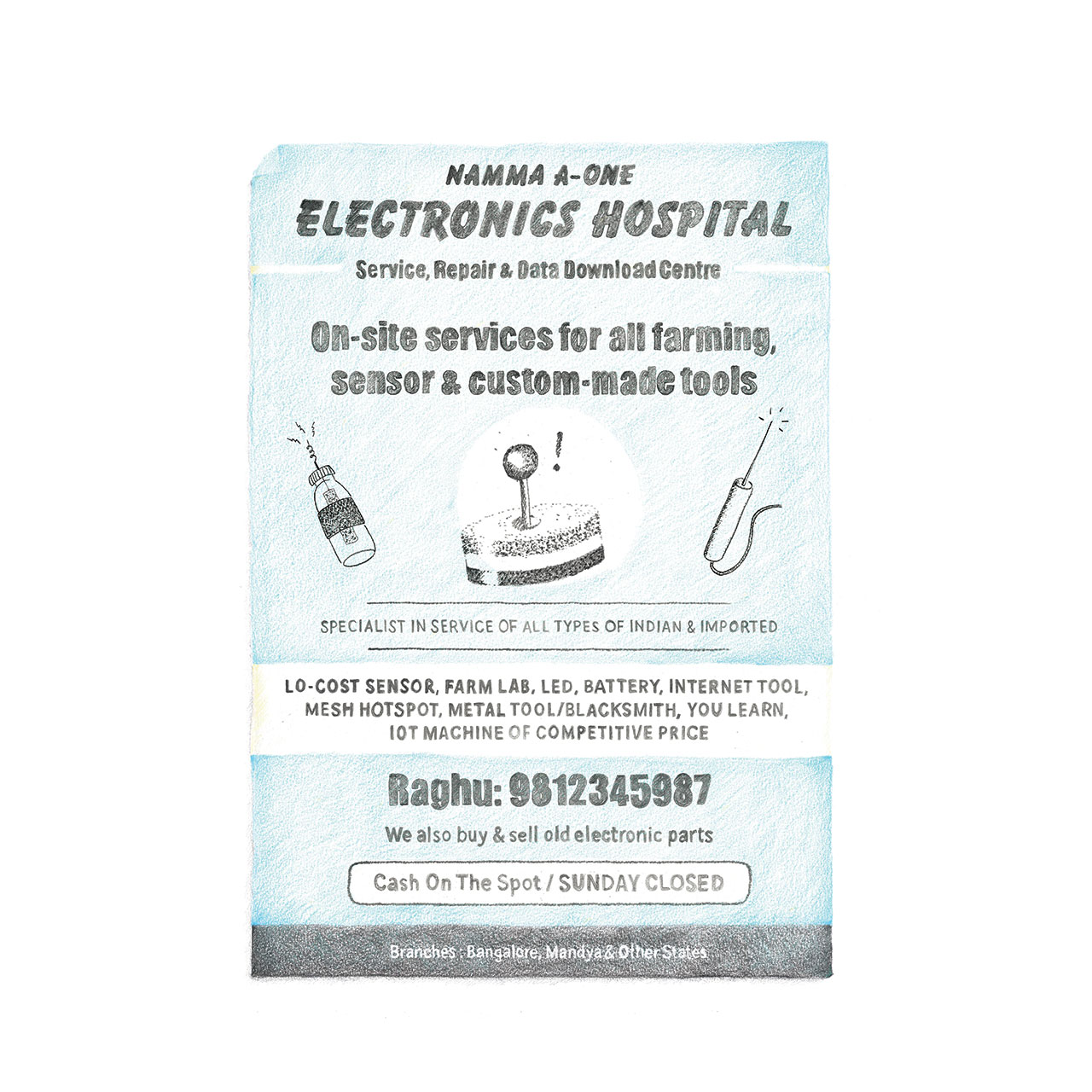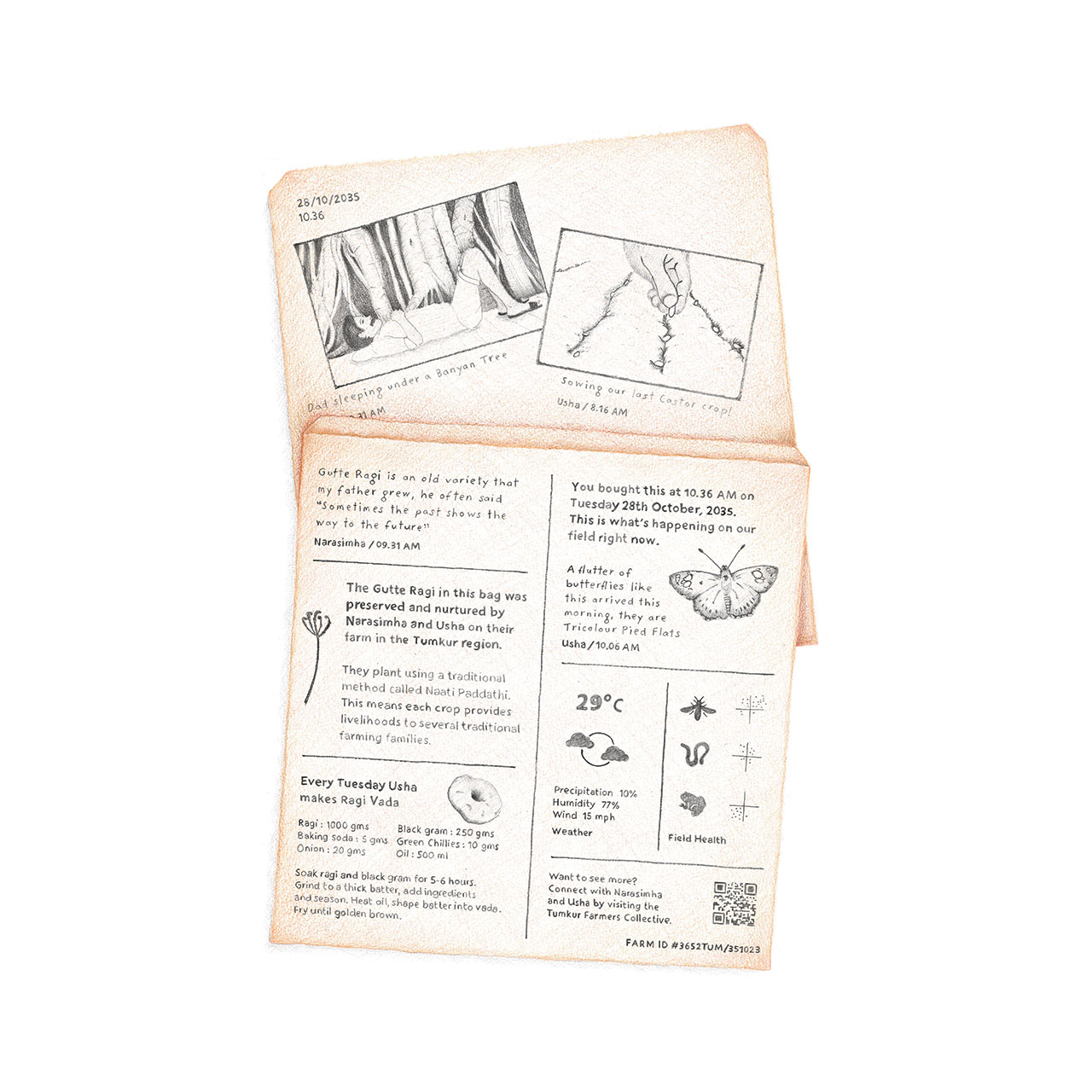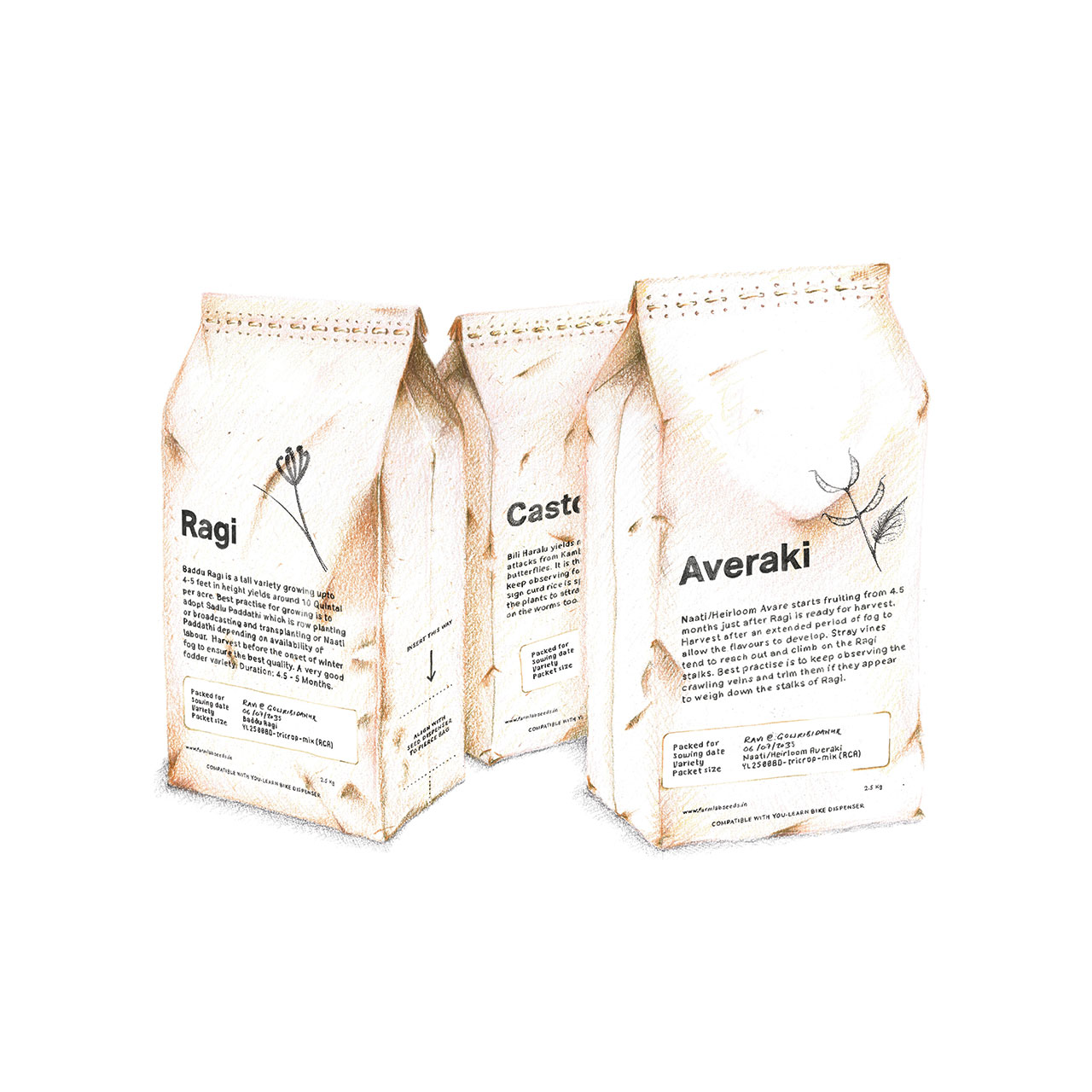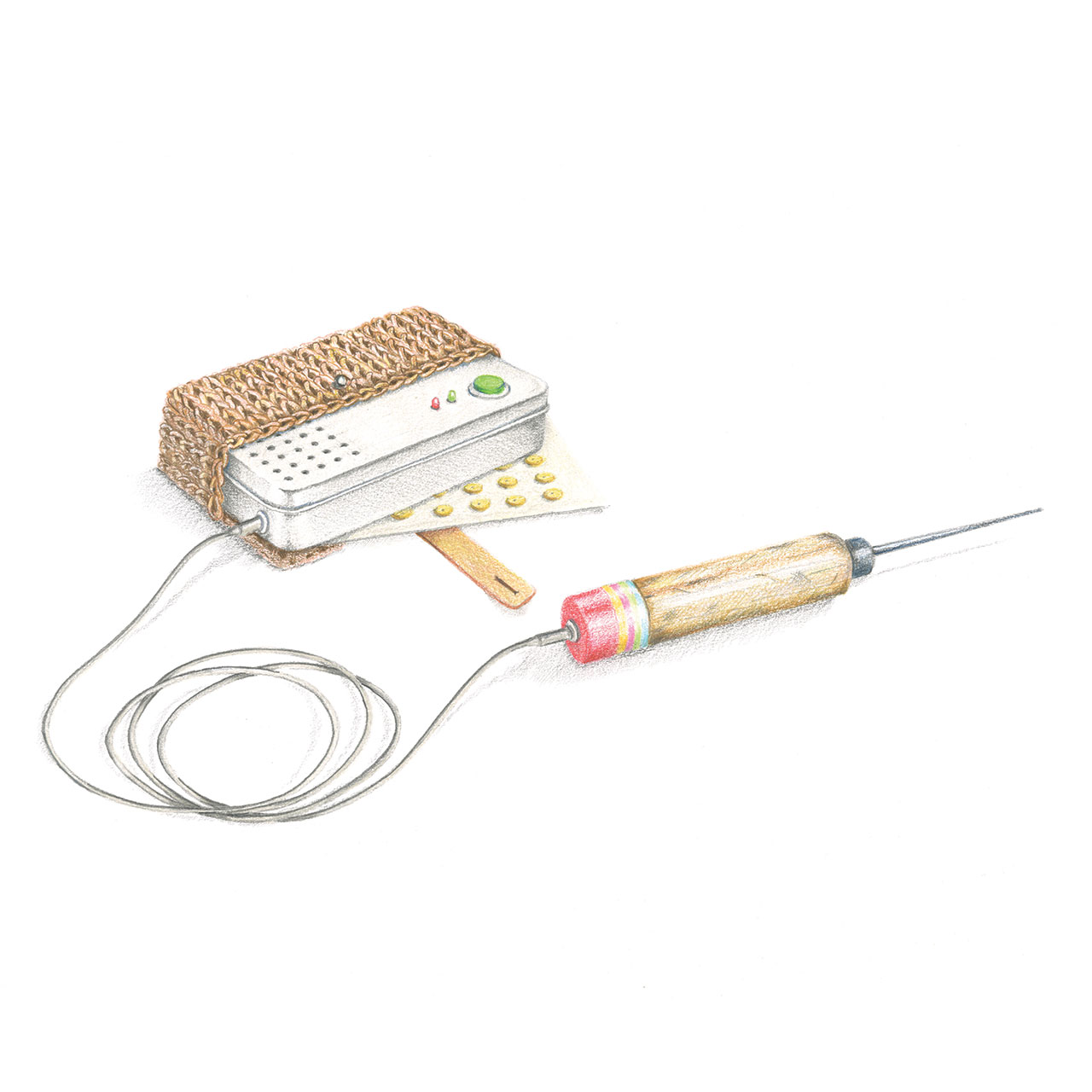Artefact 12
Electronics Hospital Flyer
With India enthralled by an emergent digital swadeshi movement, the decolonisation of the Internet, and the decentralisation of networks, we have started to see new kinds of repair shops that embrace what many are calling digital jugaad. ‘Repair, mend, and restart’ is now for people’s Internet-connected devices what it once was for bicycles and farm tools. New regulations control India’s right-to-repair and holds for all domestically-manufactured goods, including the Internet of Things. This, combined with a nationwide training program in creative technology from You- Learn, has led to an explosion of micro-workshops across cities, neighbourhoods, and villages, geared towards repairing and repurposing everything from fitness trackers and voice assistants to GPS seed planters and mesh controllers.
Usha leans her bike against the front of ‘Namma A-One Electronics Hospital’. The hospital is a small three-by-three metre shopfront, housed within a two-story building that runs along the main street. It is part shop, part workshop, part school. The window is packed with boxes, old and new, containing home and farm electronics: pick and mix data tokens from Channapatna, an 8th gen GPS seed planter, a You-Learn water pump adapter, an aged weather-trowel, and a host of regular tools that have been rigged- up to include all sorts of AI-powered sensors. Shalini, who set up and ran the electronics hospital, is as much a part of the DNA of this building as the bits flying through the mesh network. The shop manager now, she is a local legend and regular data offerings are left outside her shop and on the mesh. Usha is here to attend one of Shalini’s You-Learn workshops. This one is about microbial- soil-matter upgrades for farm tools. Usha is happy to take off her heavy backpack and unpack the ten soil sensors she is upgrading for her village. She’d received a message from Shalini a couple of days ago: You-Learn’s neural networks were now ready to resolve a new set of identification metrics for microbial measurement. Managing the upgrade was not beyond Shalini’s capability, but it was complex enough that Shalini was worried about not having the time and resources to upgrade everything individually. Usha had happily agreed to assist; she knew too that looking after her soil sensors was just like looking after her crops. It was something her dad had taught her when he was still alive: if she treated her crops well and gave them the care they needed, she’d be able to look forward to a healthy harvest.







